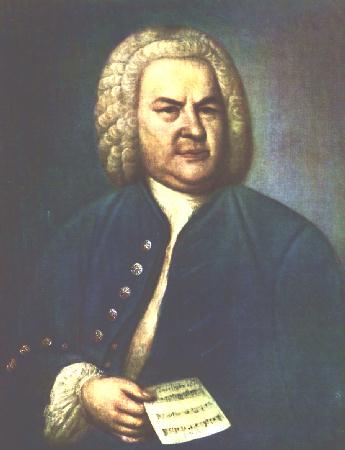
Let us first look at the course of Beethovenís life and, in a chronological manner, also at the connections with Bach that are traceable in it:
Johann Adam Hiller, later also Cantor at St. Thomas at Leipzig (as Bach) who also published in 1784 a brief account of Bach in his 'Lebensbeschreibungen beruehmter Musikgelehrten und Tonkuenstler neuerer Zeit'. (Hiller also staged Handel's "Messiah" in Germany).
He also furthered Christian Gottlob Neefe, and gave him one of his jobs (the one with Seiler's company, which then brought Neefe to Bonn).
At Bonn, Neefe became, among other things, Beethoven's music teacher and put him to practice J.S. Bach's "Well-Tempered Klavier". Proof of this can be found in Neefe's March 1783 article on young Beethoven.
The first Bach biographer, Johann Nikolaus Forkel, dedicated the first publication of his Biography to Baron Johann Gottfried van Swieten.
Baron van Swieten was the son of Empress Marie Therese's Dutch physician, sometimes Austrian Ambassador to Berlin, but also a well-respected connoisseur of music and furtherer of the music of the 'old' masters Bach and Handel. He was also friends with Haydn and Mozart and commissioned Mozart to write an arrangement to Handel's "Messiah".
When Beethoven arrived in Vienna and was also introduced to the salon of van Swieten, the latter took to him and became his patron. Perhaps Beethoven impressed him with his skill as a player of Bach works.
This all seems to give a certain indication that Beethoven was as familiar as a musician of his day could be with the works of Bach and that he appreciated them.
"Proof" of this appreciation can be found in one of his letters to the Leipzig publisher Hoffmeister in which he asked for the complete edition of Bach's works and called him the "very father of musical harmony". On another occasion, Beethoven is reported as having said, "Bach sollte nicht Bach, sondern Meer heissen" (Bach should not be called Bach (brook) but Meer (sea).
A more "tangible" proof of Beethovens "active" appreciation of Bach was his own attempt at helping the only surviving daughter of Bach, Regine Susanne Bach, who outlived her days as a spinster in Vienna in poverty and died there in 1809 (Bach died intestate and therefore, his second wife and daughters could only claim 1/3 of his estate). In his very first "deafness letter" to his lifetime friend, Dr. med. Franz Gerhard Wegeler, of June 29, 1801, Beethoven described his economic situation as very good due to his many commissions and explained to Wegeler that he only had to sit down and to compose something if he wanted to come to a friend's help and if he did not have any money on hand. That this comment referred in particular to his attempt to come to the aid of Bach's daughter is confirmed by his correspondence of the same time with his Leipzig publishers. Beethoven made this statement of his "affluence" and of his willingness to help b e f o r e he went on to describing his beginning deafness to his friend.
A "musical proof" of Beethoven's understanding and appreciation of Bach's importance can be found in his works of the "late period", particularly the "late string quartets" and possibly also the "Missa Solemnis", in all of which Beethoven partially turned to polyphony. Moreover, in his "Great Fugue" of op. 130 (later presented as op. 133), Beethoven might have wanted to "prove" that he, too, was capable of composing a fugue, as he had been accused of not being able to write those, very well.
While we have explored the issue of Beethoven and Bach, we might wish to explore Bach further before we will continue this investigation at a future date. The links on the menu bar to the left give you access to several ways of doing so, and we wish you a great deal of reading enjoyment in the process!